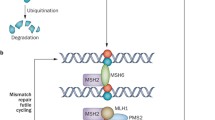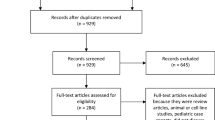Abstract
This study was conducted to assess the current pattern of use and the impact of available molecular predictive and prognostic biomarkers on clinical care in patients with glioblastoma (GBM). An online questionnaire consisting of 15 questions about the frequency of use and clinical utility of tissue-based molecular tests was distributed to 1,053 members of the Neuro-Oncology Community in the United States. A total of 320 responses (30.4 %) were collected. 73 respondents who did not see GBM patients were excluded from analysis. MGMT promoter methylation testing (MGMT-meth) was the most commonly requested (37.2; 95 % CI, 31–44), followed by EGFR amplification (22.7; 95 % CI, 18–28), co-deletion of 1p/19q (22.3 %), EGFR expression (21.5 %), P53 mutation (19.8 %), PTEN mutation or deletion (17.4 %), EGFRvIII mutation (12.1 %), IDH1/2 mutation (12.1 %), PDGFR (4.5 %), and PIK3CA (0.8 %). The perceived utility of these studies was variable between participants. A small percentage of respondents felt that any of the studies were “always” or “almost always” helpful in clinical decision making (MGMT-meth 10.9 %; range, 0–13.8 %), but more frequently “never” or “almost never” helpful (MGMT-meth 25.9 %; range, 25–54.7 %). 26.7 % reported not to routinely order any of these studies. Although molecular markers are frequently ordered for patients with GBM, only a minority of clinicians ordering these tests report that the results influence clinical decision-making. Molecular markers that are likely to affect patient care should be ordered with the goal to maximize benefit for patients and to avoid non-actionable results and additional costs.

Similar content being viewed by others
References
Stupp R, Hegi ME, Mason WP, van den Bent MJ, Taphoorn MJ, Janzer RC, Ludwin SK, Allgeier A, Fisher B, Belanger K et al (2009) Effects of radiotherapy with concomitant and adjuvant temozolomide versus radiotherapy alone on survival in glioblastoma in a randomised phase III study: 5 year analysis of the EORTC-NCIC trial. Lancet Oncol 10:459–466. doi:10.1016/S1470-2045(09)70025-7
Holdhoff M, Grossman SA (2011) Controversies in the adjuvant therapy of high-grade gliomas. Oncologist 16:351–358
Parsons DW, Jones S, Zhang X, Lin JC, Leary RJ, Angenendt P, Mankoo P, Carter H, Siu IM, Gallia GL et al (2008) An integrated genomic analysis of human glioblastoma multiforme. Science 321:1807–1812. doi:10.1126/science.1164382
Yan H, Parsons DW, Jin G, McLendon R, Rasheed BA, Yuan W, Kos I, Batinic-Haberle I, Jones S, Riggins GJ et al (2009) IDH1 and IDH2 mutations in gliomas. N Engl J Med 360:765–773. doi:10.1056/NEJMoa0808710
Hegi ME, Diserens AC, Gorlia T, Hamou MF, de Tribolet N, Weller M, Kros JM, Hainfellner JA, Mason W, Mariani L et al (2005) MGMT gene silencing and benefit from temozolomide in glioblastoma. N Engl J Med 352:997–1003. doi:10.1056/NEJMoa043331
Brandes AA, Franceschi E, Tosoni A, Benevento F, Scopece L, Mazzocchi V, Bacci A, Agati R, Calbucci F, Ermani M (2009) Temozolomide concomitant and adjuvant to radiotherapy in elderly patients with glioblastoma: correlation with MGMT promoter methylation status. Cancer 115:3512–3518. doi:10.1002/cncr.24406
Stupp R, Mason WP, van den Bent MJ, Weller M, Fisher B, Taphoorn MJ, Belanger K, Brandes AA, Marosi C, Bogdahn U et al (2005) Radiotherapy plus concomitant and adjuvant temozolomide for glioblastoma. N Engl J Med 352:987–996. doi:10.1056/NEJMoa043330
Hegi ME, Liu L, Herman JG, Stupp R, Wick W, Weller M, Mehta MP, Gilbert MR (2008) Correlation of O6-methylguanine methyltransferase (MGMT) promoter methylation with clinical outcomes in glioblastoma and clinical strategies to modulate MGMT activity. J Clin Oncol 26:4189–4199. doi:10.1200/JCO.2007.11.5964
van den Bent MJ, Looijenga LH, Langenberg K, Dinjens W, Graveland W, Uytdewilligen L, Sillevis Smitt PA, Jenkins RB, Kros JM (2003) Chromosomal anomalies in oligodendroglial tumors are correlated with clinical features. Cancer 97:1276–1284. doi:10.1002/cncr.11187
Mellinghoff IK, Wang MY, Vivanco I, Haas-Kogan DA, Zhu S, Dia EQ, Lu KV, Yoshimoto K, Huang JH, Chute DJ et al (2005) Molecular determinants of the response of glioblastomas to EGFR kinase inhibitors. N Engl J Med 353:2012–2024. doi:10.1056/NEJMoa051918
Kilic T, Alberta JA, Zdunek PR, Acar M, Iannarelli P, O’Reilly T, Buchdunger E, Black PM, Stiles CD (2000) Intracranial inhibition of platelet-derived growth factor-mediated glioblastoma cell growth by an orally active kinase inhibitor of the 2-phenylaminopyrimidine class. Cancer Res 60:5143–5150
Holdhoff M, Kreuzer KA, Appelt C, Scholz R, Na IK, Hildebrandt B, Riess H, Jordan A, Schmidt CA, Van Etten RA et al (2005) Imatinib mesylate radiosensitizes human glioblastoma cells through inhibition of platelet-derived growth factor receptor. Blood Cells Mol Dis 34:181–185. doi:10.1016/j.bcmd.2004.11.006
Wen PY, Yung WK, Lamborn KR, Dahia PL, Wang Y, Peng B, Abrey LE, Raizer J, Cloughesy TF, Fink K et al (2006) Phase I/II study of imatinib mesylate for recurrent malignant gliomas: north American Brain Tumor Consortium Study 99–08. Clin Cancer Res 12:4899–4907. doi:10.1158/1078-0432.CCR-06-0773
Reardon DA, Egorin MJ, Quinn JA, Rich JN, Gururangan S, Vredenburgh JJ, Desjardins A, Sathornsumetee S, Provenzale JM, Herndon JE et al (2005) Phase II study of imatinib mesylate plus hydroxyurea in adults with recurrent glioblastoma multiforme. J Clin Oncol 23:9359–9368. doi:10.1200/JCO.2005.03.2185
Acknowledgments
This project was supported by the Robert H. Gross Memorial Fund. M.H. was recipient of a 2010 ASCO Young Investigator Award by the Conquer Cancer Foundation. Thanks to Christine Carson and Clare Ferrigno for critical review of the submitted survey questions.
Conflict of interest
L. A. D. is founder and officer and holds stocks of Personal Genome Diagnostics. The other authors have no conflict of interest to disclose.
Author information
Authors and Affiliations
Corresponding authors
Electronic supplementary material
Below is the link to the electronic supplementary material.
Rights and permissions
About this article
Cite this article
Holdhoff, M., Ye, X., Blakeley, J.O. et al. Use of personalized molecular biomarkers in the clinical care of adults with glioblastomas. J Neurooncol 110, 279–285 (2012). https://doi.org/10.1007/s11060-012-0968-3
Received:
Accepted:
Published:
Issue Date:
DOI: https://doi.org/10.1007/s11060-012-0968-3




